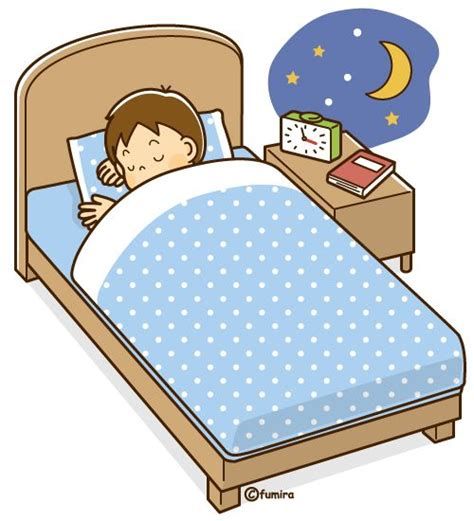Getting ready for bedtime
6 Tips to Build a Better Bedtime Routine
Sure, without a bedtime routine, you will eventually fall asleep. But who knows how long that will take—or how well you will actually sleep when the lights go out.
“Most of us cannot sleep on command, but routine helps the brain know that it’s preparing for sleep,” says Rebecca Scott, research assistant professor of neurology at the NYU Langone Comprehensive Epilepsy Center—Sleep Center. “Our sleep system, along with most other neurophysiological systems, likes predictability and consistency.”
Why? Because predictability and consistency are boring. It’s calm. “Routine implies safety,” says Dr. Rafael Pelayo, clinical professor of psychiatry and behavioral sciences at the Stanford Center for Sleep Sciences and Medicine. “It’s why we read kids the same story every night.”
Here are six tips to creating a bedtime routine that will have you waking up feeling better. Remember, the key to these tips is making them part of your routine—so no giving up after two nights! Pelayo notes that some people need a few weeks or even a couple of months for their bodies to really cement a routine.
1. Give yourself time to decompress from your day
“One of the top mistakes that women make is that they fail to take time to themselves that they need to wind down and decompress from their day,” Scott says. “Women are under overwhelming pressure to excel in all areas of their lives—to be the perfect mother, worker, daughter, partner, and struggle with balancing or even recognizing their own needs.” But to go to sleep, you need to. “The brain is preparing for sleep about two hours before our actual bedtime. We literally go from billions of neurons firing up all day to keep us alert, active and engaged, and that waking system has to slowly come down to allow the sleep system to take over.”
Dr. Peter A. Fotinakes, medical director of the St. Joseph Hospital Sleep Center, recommends his patients to set an alarm an hour to two prior to their expected bedtime —and that they use it to remind them to wind down from the day. Do something you truly enjoy and find relaxing. It could be spending some time with your partner or family, taking a “me” break, reading or even watching TV.
It could be spending some time with your partner or family, taking a “me” break, reading or even watching TV.
2. But don’t wind down with your gadgets
If you do decide to catch up on your favorite show, don’t do it on your computer or tablet. “Generally, the TV is far enough away from the eye and does not give off the same type of light that other hand-held devices emit, Scott says. Now more than ever we know the impact of blue light on sleep quality and alertness, and we know that even just a few seconds of exposure from a blue light-emitting device an hour before bed can disrupt the melatonin rhythm, a rhythm that is so critical to helping us fall asleep, stay asleep and wake up feeling refreshed.”
3. Eat a light, pre-bedtime snack (if you’re hungry)
While heavy foods and big meals or snacks consumed right before bed can disrupt sleep, the greater nighttime food issue facing many women is hunger, Fotinakes says. “In our perpetually dieting world, it’s not uncommon to lie in bed hungry, but not wanting to eat in an effort to save calories. However, hunger is stimulating and fragments sleep,” he says
However, hunger is stimulating and fragments sleep,” he says
Read more: Career Advice: 3-Hour Morning Routine for Success
Sound familiar? Go ahead and eat a light snack before bed, preferably one that is low in fat, which can spur nighttime acid reflux. “Eating a light carbohydrate or protein snack prior to bedtime will stave off hunger without causing you to crash and awaken later in the night,” Fotinakes says. Possible snack choices include an apple, slice of lean turkey or a cup of yogurt.
4. Take a warm bath two to three hours before bed
According to research from Cornell University Medical College, a nighttime drop in core body temperature increases one’s chances of both falling asleep and enjoying the coveted deep layers of sleep.
Interestingly, one of the best ways to trigger a drop in your body temperature is to raise it two to three hours earlier by taking a warm bath, Scott says. When your body senses the increase in core temp, it responds by dilating your blood vessels and directing blood flow toward your skin, which quickly releases heat. If you find yourself in need of some extra relaxation, you can also try adding some lavender oil to the water.
If you find yourself in need of some extra relaxation, you can also try adding some lavender oil to the water.
5. Don’t get into bed until right before it’s time to sleep
You’ve probably heard the saying that your bed is for sleep and sex—and that’s it. But even those extra hours spent reading or watching TV before sleep can add up. “The more time you spend in the bed before you sleep, the more your body gets used to being awake in bed,” says Pelayo.
He recommends spending any time winding down before bed in a “daytime” space like the living room, then heading to bed about 20 minutes before you want to be asleep.
6. Go to bed at the same time every night
“We have an internal sleep-wake cycle that revolves around the 24-hour day,” Fotinakes says. “I tell patient that I don’t care so much about when they sleep, but that they get enough sleep and keep their sleep cycle regular.” That goes even for the weekends. Sleeping in to compensate for late Friday or Saturday nights—or sleep-deprived workweeks—is a major cause of insomnia and sleep trouble, he says.
Contact us at [email protected].
Here Is the Best Way to Get Ready for Bed
meganleetz/Flickr BI Answers: What is the best way to get ready for bed?
We all know the feeling. It's 2 a.m. and you just can't seem to fall asleep.
How many cave men do you think had that problem?
"The brain back then used to get all these cues," Dr. Rachel Salas, a sleep researcher at the John Hopkins University School of Medicine told Business Insider in an email. The sun would go down. It would be dark. There was no modem lights flickering up the walls of their caves.
These days, we've stripped our environment of all the signals that would usually prime our body for sleep and added a slew of signals that tell it to stay awake. "Honestly, a lot of patients just really have no idea of things in their environment that can have such a big negative impact on their sleep," she said.
"Honestly, a lot of patients just really have no idea of things in their environment that can have such a big negative impact on their sleep," she said.
The good news is that there are things you can do as you get ready for bed to reinstate those sleep cues. For example, just having a "sleep uniform" (pajamas) helps, Salas said. Some people get home, change clothes, and then spend the rest of the evening doing house chores. Then they try to sleep in those clothes. "This is one way for your brain to not get a cue of when bed time is," she said.
We asked Dr. Salas for a couple more tips on the best ways to prime your body for sleep, and lucky for us, she was generous with her answers. See her list — which we've lightly edited — below:
Reduce light at night
- Refrain from using alarm clocks or night lights in the bedroom — they distract you from a healthy sleep.
- Use lamps in the evening instead of overhead lighting which can mimic the sun.

- Use a dim night light in the bathroom so you don't have to turn the light on fully if need be.
- Don’t sleep with TV or lights on — they will make your sleep lighter.
Light Exposure During the Day
- Make sure to get natural light in the mornings to jumpstart your internal clock.
- Take work breaks outside in sunlight. Some good ideas include exercising outside, or heading out for a walk with your dog during the day.
- Keep curtains and blinds open during the day to help you get attuned to the sun's natural light cycle.
Unplug Yourself
- The sounds and lights from texts, emails, and alerts can interrupt your sleep.
Keep Your Schedule Consistent
- Wake up at the same time every day so your body can get into a rhythm.
- Nap to make up for lost sleep, but don't nap for more than 30 minutes or you might throw off your sleep cycle and wake up feeling even groggier.

- Nap earlier in the day so you can still get to bed at night. No naps should happen later than 3 p.m..
Get comfortable
- Taking a bath or shower at bedtime can help relax you.
- Putting on pajamas can send your body a message that it is time for bed.
- Calm your mind with prayer, meditation, yoga, or stretching.
Feel Safe in Your Bedroom:
- But don’t sleep with weapons in your bedroom.
- Invest in a security system and a fire system so you can rest assured you will be woken if needed.
Keep the Bedroom Temperature Cool
Reduce Allergens:
- Use an air purifier in your bedroom and clean your carpets so you can breathe easy.
This post is part of a continuing series that answers all of your "why" questions related to science. Have your own question? Email [email protected] with the subject line "Q&A"; tweet your question to @BI_Science; or post to our Facebook page.
Have your own question? Email [email protected] with the subject line "Q&A"; tweet your question to @BI_Science; or post to our Facebook page.
How to improve the efficiency of sleep - Work.ua
Self-development
- 4
- 13013
- Self-development
It is a full-fledged sleep that ensures a full-fledged life and productive work. Work.ua knows how to learn to sleep effectively.
Even the feeling of not sleeping well can lead to reduced productivity. This confirms both the personal experience of many and the research of Colorado College. Sleepy people are easier to concentrate on work and personal affairs.
This confirms both the personal experience of many and the research of Colorado College. Sleepy people are easier to concentrate on work and personal affairs.
Sleep duration
It's all about how much you sleep. The norm for each in different life situations is different. On average, the optimal sleep time for a healthy adult is 7-8 hours. 9hours - if you are tired, 10 hours - for a sick person, 12 hours - after a serious physical or emotional overload.
Less time for sleep may be enough with an ideal state of the nervous system or with additional energy stimulants: a burning project deadline, falling in love, a small child and similar situations. But these stories should not be abused.
The main thing is to treat sleep as a recuperation, sleep exactly as much as your body needs, and get ready for sleep.
Getting ready for bed
Yes, sleep requires respect and compliance with the rules:
- Do not eat at least 3 hours before bedtime .
 Do not load your body with digestion of food, it will not be at all up to sleep. You will sleep better and easier.
Do not load your body with digestion of food, it will not be at all up to sleep. You will sleep better and easier. - Do not drink alcohol, energy drinks, coffee, green tea . They will make sleep restless. An alternative is herbal teas, ginger drink with lemon and honey. They do not excite the nervous system, improve digestion and soothe.
- Avoid strenuous exercise before bed. But 30-40 minutes in the fresh air and light stretching at home relieve the tension accumulated during the day and refresh your head.
- Turn off all blue screens an hour before bedtime: computer, smartphone, TV. Bright light from the screen can interfere with the production of the hormone melatonin, which is produced by the body at night and acts as a natural sleep aid. With bright screens, we knock down biorhythms and push back the beginning of sleep.
- And spend this time in peace . Read - a good book will clear your mind of any unresolved issues of the day and can be another incentive to go to bed early.
 Take a shower - water relieves emotional stress.
Take a shower - water relieves emotional stress. - Make a list of tasks for tomorrow by putting the noise out of your head and onto paper. Sometimes something important is remembered already under the covers, so keep a notepad by the bed.
In the morning
And the morning is the time of power. Since we ourselves are the result of our minutes, it is important to spend the morning as productively as possible:
1. Learn to get up early. Waking up early is one of the habits that will help you change your life for the better, feel the effect of a “long day” and a minimum of noise, which is especially valuable for residents of big cities. If you wake up just an hour earlier, in a year you can accumulate as many as 15 extra days of conscious existence.
2. Alarms put away, the call is assertive, the interval between calls is 5 minutes. For very advanced cases, you can use more sophisticated alarm clocks:
- an alarm clock shredder that cuts money until you turn it off;
- an alarm clock that quickly rolls around the floor with wake-up sounds that you need to catch to turn it off;
- and for someone, the Anthem of Ukraine may be suitable as a call, under which it is simply impossible not to get up.

3. Start morning rituals: write down dreams or first thoughts after sleep, drink a glass of water, wash your face, turn on music immediately after waking up, do exercises. These and other things that successful people do in the morning, make it a habit. Healthy rituals create a healthy rut for the day.
Sleep Hygiene
Don't miss common important sleep rules:
- Go to bed and wake up at the same time every day to set your daily biorhythm.
- Use the bed only for sleeping . Eating and working at the computer can happen in the bathroom, but not in the bedroom. Make it a rule to leave any work matters outside the bedroom.
- Keep your bedroom cool and dimly lit . It is better to sleep under a double blanket, but with oxygen.
- Practice naps even when you are working. 19 minutes of sleep per break only benefits employees and employers because it improves mental efficiency and productivity.
 Major corporations like Google and Apple encourage naps between jobs.
Major corporations like Google and Apple encourage naps between jobs. - But don't practice sleeping on weekends . People who sleep differently on Saturday and, say, on Thursday, can earn a chronic metabolic disorder.
Healthy and effective sleep is a matter of good habit that can do a good job. Only Work.ua warns against abruptly introducing all habits. It is better to move intelligently from less to more, and gradually you will be able to combine a convenient schedule with effective sleep.
Follow us on Telegram
You must be logged in to leave a comment.
More articles
3 Things You Can't Control When Looking for a Job
7 life-affirming books that inspire faith in the future
news, advice, health, useful advice
Belarus News / Useful advice
Belnovosti
Healthy sleep is very important for our body. It is during the night's rest that the body relaxes, the muscles rest, the brain assimilates and processes the information received. While you sleep peacefully in your bed, millions of important processes are taking place in your body.
It is during the night's rest that the body relaxes, the muscles rest, the brain assimilates and processes the information received. While you sleep peacefully in your bed, millions of important processes are taking place in your body.
The modern rhythm of life can often deprive us of restful sleep.
In this article we will give you some tips on how to normalize your sleep.
How to get ready for bed?
1. Don't watch TV or use your smartphone an hour before bedtime
This must have come as a shock to many. Of course, studies have shown that almost 90% of people are most active on the Internet late at night.
But such a habit affects your health in the most merciless way. The violet spectrum of the display radiation, emotions and new ideas for reflection lead to stress. As a result, you cannot fall asleep for a long time or sleep poorly.
The brightness of the screen harms eyes that are tired from the day. Wrinkles appear from overwork and the face “sags”. These are not all the consequences of such an addiction. Therefore, it is better to give up the TV, smartphone, computer before going to bed. Instead, you can read literature.
Wrinkles appear from overwork and the face “sags”. These are not all the consequences of such an addiction. Therefore, it is better to give up the TV, smartphone, computer before going to bed. Instead, you can read literature.
2. Try to limit contact with people an hour before bedtime
For example, checking mail, correspondence with acquaintances, talking on the phone or sorting out relationships with relatives will become an obstacle to healthy sleep. Try to avoid all of this. It is better to ask your spouse to give you a massage.
3. Eating before bed
Experts advise against eating a lot before bed. It is also harmful to go to bed completely hungry. Both options will have a bad effect on the appearance, weight and condition of the internal organs. It is best to have a light snack 2 hours before bedtime.
4. Tea and coffee
Avoid tea and coffee before bed. The only exception is herbal teas, which have a calming effect. Such fees are sold in pharmacies and, on the contrary, are recommended to improve sleep.
5. Smoking and alcohol
On the net, some users say that alcohol helps them sleep better. Even if you really have such a feature of the body, it is better to give up alcohol before bedtime. The fact is that your organs at night will not be able to cope with the toxins that are contained even in table wine or beer.
6. Temperature control
Before going to bed, it is not recommended to take a hot bath or a contrast shower. Also in the morning you need to transfer all the hardening procedures.
A warm sea salt bath is best. The water temperature should not exceed 37%.
7. Airing the room
We spend at least 6-7 hours sleeping. During this time, the oxygen concentration in the room decreases. To make it easier for your body to wake up in the morning, and you feel fresh and alert, before going to bed, do not forget to ventilate the bedroom well.
How to get ready for bed:
- Do not eat before bed;
- Ventilate the room;
- Give up computer games, social networks, news reading.











